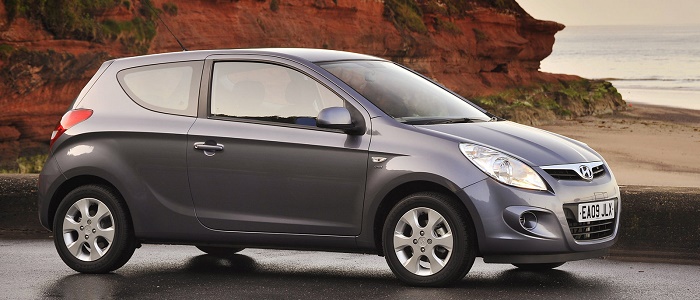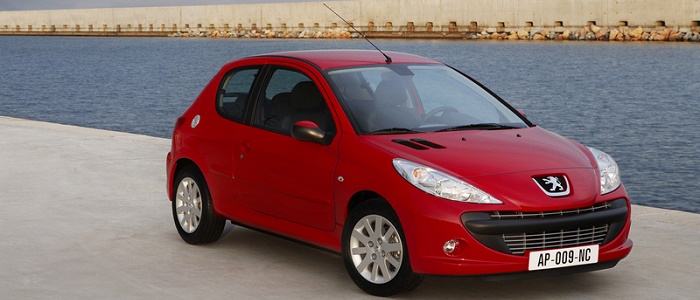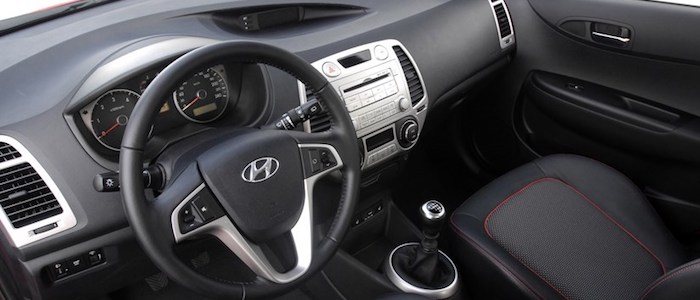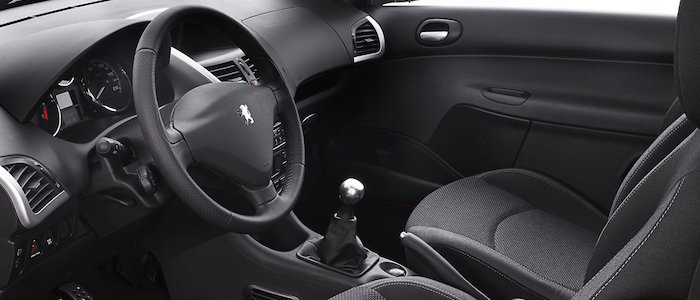Compare two cars
Compare any two cars and get our Virtual Adviser™ opinion
Marketing
Dimensons & Outlines
Engine
Performance (manual gearbox)
Performance (automatic gearbox)
Expenses
Virtual Adviser's™ opinion
Well, these are two pretty similar cars we have here! It's only details that could potentially make the difference. Considering they both belong to the city car segment and utilize the same 3-door hatchback body style and the front wheel drive system, it all comes up to the specific petrol engine choice they offer. The first one has a Hyundai-engineered powertrain under the hood, a 4-cylinder, 16-valves 100hp unit, while the other one gets its power and torque from a 4-cylinder, 8-valves 75hp engine designed by Peugeot.
SafetyBoth vehicles got tested by European New Car Assessment Programme (Euro NCAP), with the Hyundai being a slightly better choice apparently. Moving further on, let's take a closer look at some additional safety-related facts. Both vehicles belong to the city car segment, which is generally not a very good thing safety-wise, still it doesn't help us solve our dilemma, does it? Furthermore, if we'd like to consider vehicle mass in this context too, which we definitely should, the Korean car offers a marginal difference of 6% more metal.
ReliabilityI don't like generalizing things when it comes to reliability, although it does seem that both brands display similar results in faults and breakdowns, at least on all of the models level. That's the official data, while our visitors describe reliability of Hyundai with an average rating of 4.5, and models under the Peugeot badge with 4.3 out of 5. The same official information place i20 as average reliability-wise, and 206+ is more or less at the same level.That apart, owners of different cars powered by the same engine as the Korean car rank it on average as 4.5, while the one under the competitor's bonnet gets 4.0 out of 5.
Performance & Fuel economyHyundai is undoubtly more agile, reaching 100km/h in 2.1 seconds less than its competitor. In addition to that it accelerates all the way to 180 kilometers per hour, 14km/h more than the other car. When it comes to fuel economy things look pretty much the same for both cars, averaging around 5.8 liters of fuel per 100 kilometers (49 mpg), in combined cycle.
Verdict
Hyundai appears just a bit more reliable, although the difference is truly marginal. The most important thing when deciding between any two vehicles should always be safety, both passive and active. In my opinion, everything taken into account, the Korean car offers much better overall protection, which launches it ahead of the other contender. It all continues in the same direction, with Hyundai being considerably quicker, thus putting more smile on driver's face. To make things even better, it consumps less fuel! All together, there's not much more to say, in this case I wouldn't even consider anything but Hyundai. In any case that's my personal view, built upon all the data available to me. What should decide here though is the way you feel about the two vehicles, and I hope you'll find my guidelines useful in the process. In case you have two minutes to spare I invite you to define your needs, desires and budget and see which car would be chosen by the virtual adviser™, among more than 12.000 different ones in our database.































